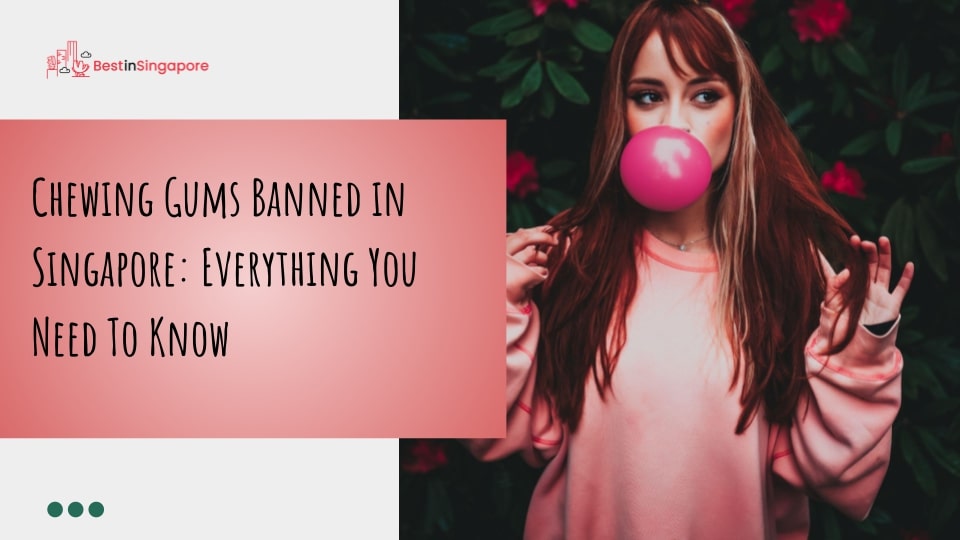Chewing Gums Banned in Singapore: Everything You Need to Know
Many people believe that the chewing gum ban has significantly contributed to why Singapore is so clean. But today’s post aims to look at how this particular prohibition came about.
So without further ado, let’s learn more new things about Singapore’s chewing gum ban.
Why is chewing gum not allowed in Singapore?

Singapore’s outlawing of chewing gum has a lot to do with the introduction of its Mass Rapid Transport (MRT). Some unruly passengers put chewed gum on the train doors, causing the entire system to malfunction and ruining the train schedules.
Have you ever gotten gum stuck in your running shoes or had to call a professional cleaning service to get rid of them from furniture?
Then you’ll get an idea of the inconvenience caused by the seemingly innocent chewing gum to the Singapore government.
Aside from the MRT debacle, chewing gum found in keyholes, the seats of public transport, and other places contributed to the wholesale ban on the sticky confectionery.
It was deemed the more effective alternative to constantly cleaning or replacing damaged objects.
When did the chewing gum ban begin?

In 1980, Lee Kuan Yew turned down the idea of prohibiting chewing gum entirely in Singapore. He thought it was too extreme a move for the citizens.
But with the Housing Development Board’s complaint of spending nearly $125,000 a year just to scrape chewed gum off walls and other surfaces, the chewing gum ban began to make sense.
It was enforced in 1992 in spite of some Singaporeans protesting against it. So if you’re planning to stay in Singapore for a bit, you might want to suspend your chewing gum habit for the duration of your vacation or visit.
What are the penalties and punishments for chewing gum in Singapore?

The Singapore legal system can provide full information on the different prohibitions and corresponding penalties. But suffice it to say that the penalty for mere possession of chewing gum can be quite formidable.
Those selling chewing gum illegally can be imprisoned for up to two years or fined US$100,000 (or both!). First offenders are usually fined around US$500 to US$1,000, which is still pretty steep.
The fine gets costlier if you’re a repeat offender. Chewing gum is such a small but disastrous culprit to such a well-planned waste disposal system that Singapore deems it should be banned altogether.
Are there exceptions to the chewing gum ban?

There are leeways to the chewing gum ban, especially after the signing of the 2004 US-Singapore Free Trade Agreement. As long as there’s a medical reason for purchasing and using chewing gum, then it’s fine (and not “fine-able”) to do so.
Some examples are when dentists prescribe them to patients with different oral conditions. Physiotherapy patients such as those with Bell’s palsy can also benefit from getting their jaws and facial muscles stronger by chewing gum.
Nicotine-based gums are also allowed as long as they come with prescriptions and meet the required amount of certain ingredients. So while some exceptions are allowed, there are a lot of requirements to meet first.


